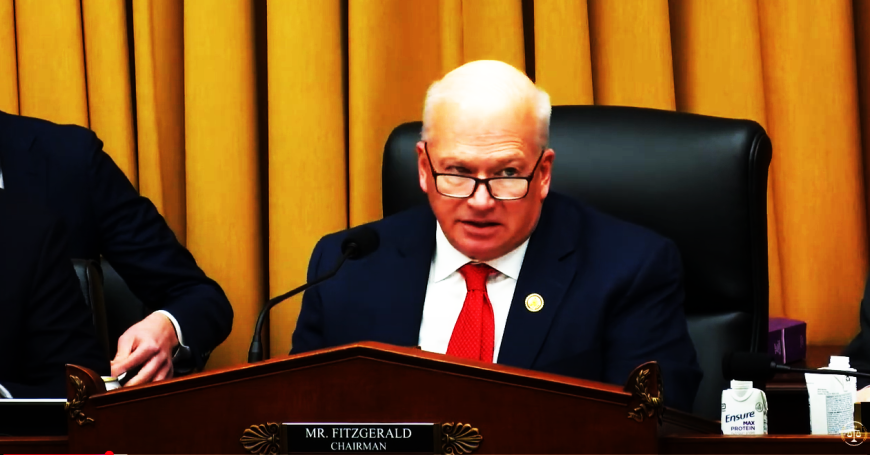Freedom Vs Control: US Lawmakers Divided on How to Handle AI Oversight
Ever wondered how your government plans to regulate the artificial intelligence that's gradually becoming part of everyday life? Well, tensions are brewing in Washington! 😮
The battle lines are drawn on Capitol Hill! A recent House subcommittee hearing revealed deep divisions between Republicans and Democrats on how to approach artificial intelligence regulation. While both sides recognize AI's rapid advancement, they're worlds apart on the regulatory path forward. 🏛️
.
Why It Matters:
This isn't just political posturing—these decisions will shape America's tech future and global competitiveness. For everyday citizens in places like Uganda and Africa at large, the regulatory approach adopted by tech giants like the US will influence how AI technologies are developed and deployed worldwide.
When America regulates—or doesn't—the effects ripple across developing nations trying to harness AI for critical challenges in healthcare, agriculture and other sectors.
.
The Great Divide:
-
Republicans champion the "light touch" 👐 approach, arguing excessive regulation will hold back innovation.
-
Democrats warn about power concentration 💪 and push for stronger Federal Trade Commission (FTC) oversight to protect consumers.
-
Both claim to support innovation but disagree fundamentally on how to achieve it.
"Will we respond to it with more freedom or with more government control?" asked Rep. Scott Fitzgerald (R-Wis.), chair of the House Judiciary Subcommittee, framing the debate in clear terms. He advocated sticking with America's successful formula: "free enterprise, open competition and a 'light touch' regulatory approach."
Meanwhile, Rep. Jerry Nadler (D-N.Y.) expressed concerns about AI advances being "concentrated in the hands of a few companies" and pushed for "strong, independent oversight by the FTC" to shield consumers from unfair practices.
.
Between the Lines:
The clash reflects deeper philosophical differences about government's role in emerging technologies. Republicans fear becoming like Europe with its comprehensive AI Act, while Democrats worry about unchecked corporate power.
.
The State-Federal Tug-of-War:
Jessica Melugin from the Competitive Enterprise Institute raised an interesting point: Congress should consider preempting the "rush of state regulations on AI" to avoid a patchwork of potentially 50+ different regulatory regimes that could slow down innovators.
.
Workers' Rights in the AI Era:
Former FTC Commissioner Alvaro Bedoya shifted focus to workers' concerns, warning that AI might not just replace jobs but do so using workers' own data—often collected without proper consent:
"Technology is replacing workers through automation. It already regulates them. In the not-too-distant future, it will replicate them," Bedoya cautioned, citing examples of customer service workers being recorded without disclosure.
.
The Bottom Line:
As political divisions deepen, meaningful AI legislation seems increasingly challenging to achieve. Tech companies will likely continue navigating uncertain regulatory waters while politicians debate philosophical approaches.
As a computer scientist at GritapAI.com, I believe the most crucial takeaway is this: we must balance innovation with responsibility. In Uganda and across Africa, we have a unique opportunity to learn from regulatory approaches elsewhere while developing frameworks that address our specific contexts.
Much like how Uganda initially skipped traditional banking with mobile money solutions, we can potentially skipped problematic AI governance models by creating thoughtful, balanced frameworks from the start.
The question isn't whether AI needs regulation—it's about finding the regulatory sweet spot that protects people while enabling innovation that serves our communities.
Want to stay informed on building explainable AI systems while navigating uncertain regulatory landscapes? Get in touch ⇨ Our YouTube channel breaks down complex concepts into practical knowledge for AI ethusiasts and business leaders alike. 🚀
References:
- House Judiciary GOP: Artificial Intelligence: Examining Trends in Innovation and Competition. YouTube Link: https://youtu.be/a7p1DiOciLw?t=898
- PYMNTS: https://www.pymnts.com/artificial-intelligence-2/2025/ai-regulations-house-gop-democrats-clash-on-ai-oversight/
- Rep. Scott Fitzgerald (R-Wis.): https://fitzgerald.house.gov/
- Rep. Jerry Nadler (D-N.Y.) : https://nadler.house.gov/
- Competitive Enterprise Institute : https://cei.org/











